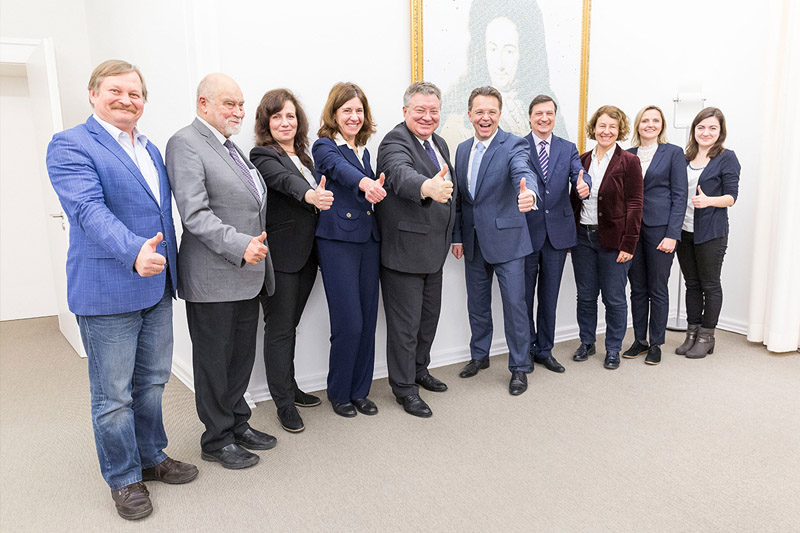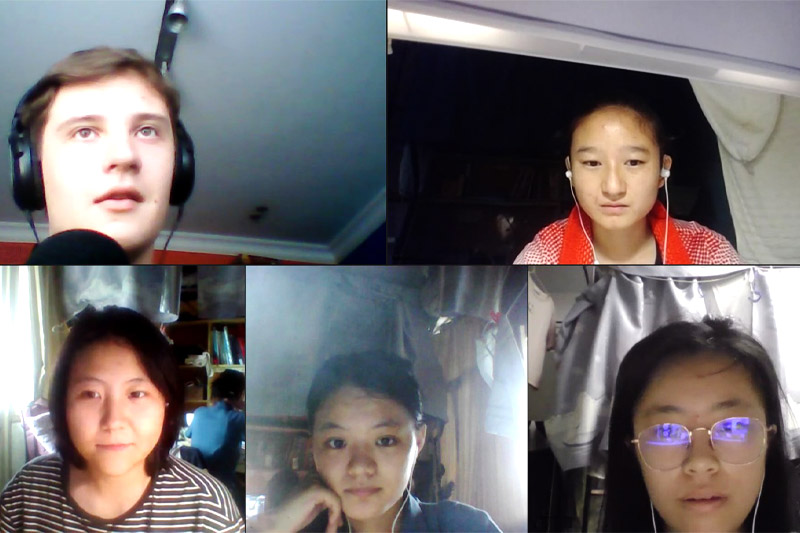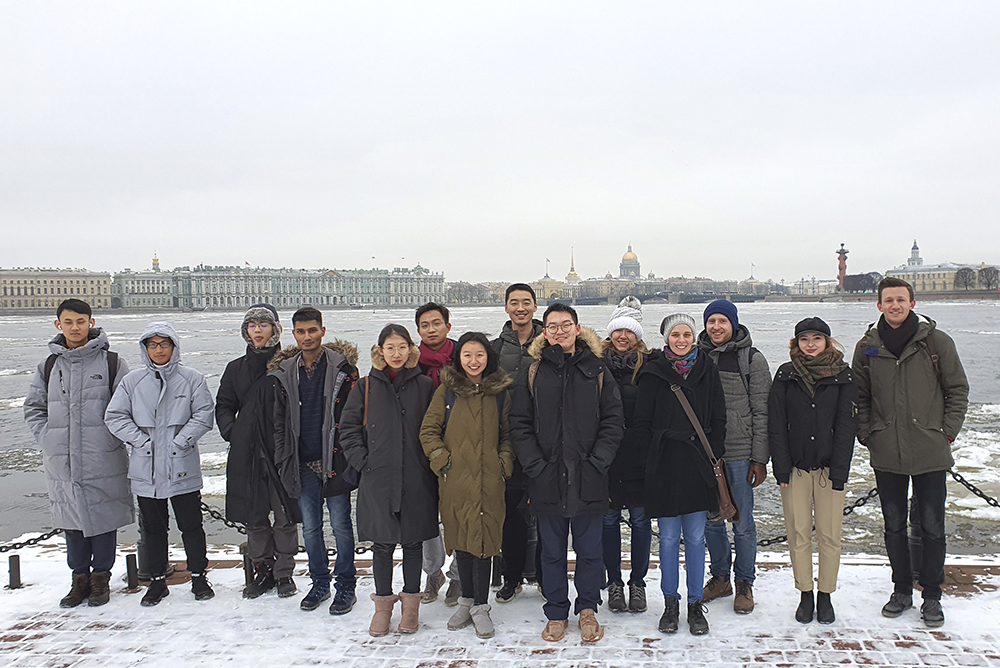
In the early December 2018, SPbPU and Leibniz Universität Hannover (LUH) summed up the results of the Strategic Partnership joint project of many years run within the frame of the German Academic Exchange Service (DAAD). On this occasion, Rector of SPbPU, Academician of RAS, A.I. RUDSKOY and President of LUH Prof. Dr. Volker EPPING, along with professors, experts, and project coordinators got together in Hannover to present outcomes of joint researches, sum up the results, and outline plans for the near future.
The Conference on Internationalization gave the start to a whole series of events. SPbPU and LUH vice-rectors for international affairs D.G. ARSENIEV and Prof. Dr. Teresa CARLOMAGNO, project coordinators N. BUTICH and A.L. MAZINA, professors, experts and representatives of DAAD took part in it. Among priority areas for further partnership, the parties singled out scientific collaboration and academic exchanges, strengthening ties with industrial enterprises, enhancing project activities and joint applications to research foundations. Another important task is enhancement of the level of international publications, those indexed in Scopus and WoS in the first place.

The Conference dedicated to the end-of-the-venture review of the 6-year DAAD Project was the key event of the program. “We have accumulated invaluable experience and impressive results of our joint activities and, no doubt, provided more of an accelerant to the fire of our universities’ progress. But in no way this could give the reason to rest on the laurel: there are new perspectives, new projects, and new achievements ahead of us,” President LUH Prof. Dr. Volker EPPING addressed the audience with these words.

Scholars from 14 scientific groups presented their results. During the 6 years of the project, Russian and German researchers conducted joint work in nanotechnology, laser technology, energy, information technology, civil engineering, new materials, etc. They published more than 100 joint publications, many of which were indexed in Scopus. A series of international double and triple degree graduate programs have been developed; nearly 400 students and over 250 teachers from both universities participated in academic mobility programs.
The year of 2018 was particularly marked with joint researches in the spheres of life sciences, additive technologies, growth technology; student and academic exchanges and joint events have also boosted. Among the latter, the qualifying stage of the prestigious student competition Falling Walls Lab took place under the auspices of DAAD and within the frame of Week of Germany in St. Petersburg.

The SPbPU rector and LUH president discussed the outcomes of the strategic partnership and plans for the future in a dedicated official meeting. Specifically for the Russian colleagues, Director of the Institute of Transport and Automation Prof. Dr.-Eng. Ludger OVERMEYER presented the new PhoenixD Cluster of Excellence.
The cluster studies are focused at the implementation of high-precision optical and laser systems and their economically efficient utilization. In particular, these systems were put to use in agriculture: with their help, farmers can control the growth of plants, manage weeds and pests, and optimize lightening in green houses. A special importance of the new optical devices had been identified in medicine: thanks to those, basing on blood tests, scholars got the option to detect various diseases at early stages.

The SPbPU rector and professors took the presentation with great attention and interest. Since SPbPU scientists have extensive experience in research and development of lasers, optical sensors, additive technologies and innovative materials, leaders of the two universities had right away discussed the possibility for SPbPU scholars to join the new cluster and use the Polytechnic University inventions in new projects
Expansion of collaboration in the sphere of joint postgraduate training was another topic of the negotiations. Quite recently, Polytechnic University has got the right of independent conferment of higher degrees in a number of scientific areas, and also the option of holding dissertation defenses in English. There already is the capacity in this area: an agreement on joint postgraduate training was signed between SPbPU and LUH in 2016, and presently, already 4 Polytechnic University graduates are finishing their postgraduate education at LUH. The recent novelties bring new perspectives for united dissertation defenses and double degree diplomas in postgraduate education.

At the bi-lateral meeting, the SPbPU rector and LUH president pointed out the necessity to continue and expand the number of joint publications and research projects, and agreed to provide all possible support to international research groups at both universities.
The next major events within the frame of the two institutions’ collaboration will be timed with the 35th anniversary of our universities’ partnership. Among other things, the plans include two international conferences, scholarly seminars, and workshops. And, no doubt, the key SPbPU partner will not stay away from the celebrations of the 120th jubilee of Polytechnic University: LUH President has timely confirmed his intention to take part in the festivities.
“The Leibniz University of Hannover is a priority strategic partner for us. Interaction between our universities has a permanent character, and very soon, we are going to celebrate the 35th anniversary of our friendship. Both universities have got vast experience from participation in the DAAD Program. They presented notable results of joint activities of many research groups. I am sure that our partnership will keep getting deeper and broader,” A.I. RUDSKOY concluded.



